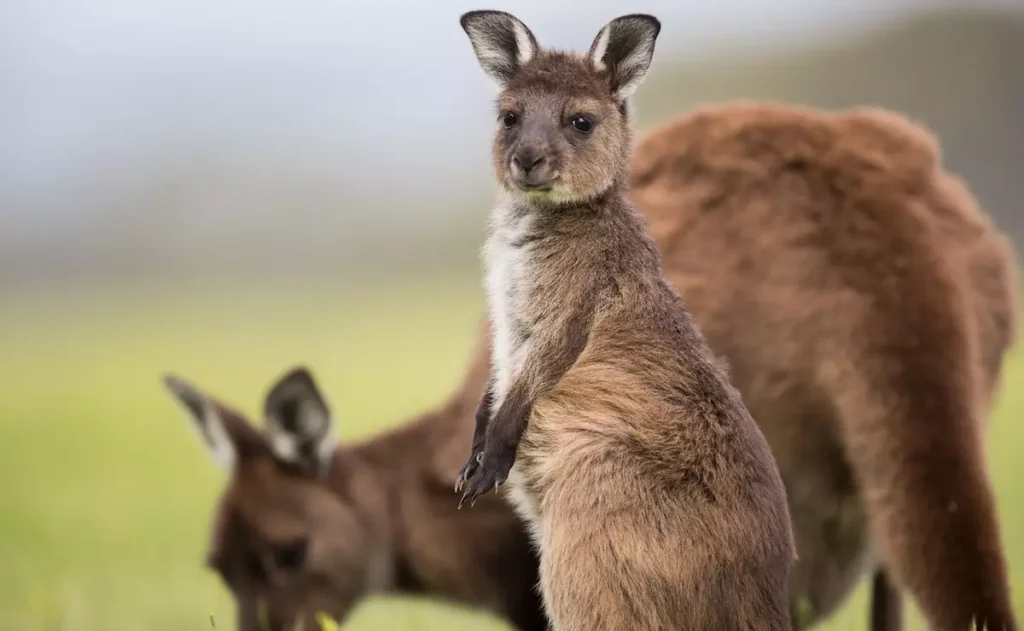Puma sheds kangaroo skins in its athletic shoes, indirectly pressuring Nike and Adidas to disassociate themselves from the largest slaughter of terrestrial wild animals in the world
Washington, D.C. – Puma, one of the biggest brands in athletic shoes and sportswear, announced this week that it is shedding kangaroo skins in its soccer cleats, bringing pressure on Nike and Adidas to cleanse their supply chains of the skins of the iconic marsupials.
“PUMA’s announcement is a major moment in our ‘Kangaroos Are Not Shoes’ campaign, with the original company to use kangaroo skins in soccer cleats now shedding the animal skins in favor of entirely non-animal-based fabrics,” said Wayne Pacelle, president of the Center for a Humane Economy, which announced its campaign in 2020 to promote ending the use of kangaroo leather in soccer cleats. “Non-animal-based fabrics are athletically and morally superior, and every company in the sector should follow Puma’s lead.”

The other companies only use kangaroo leather for their soccer cleats and not for their running, golf, tennis, or other footwear.
In its corporate statement released Thursday, Puma announced that it would no longer use K-Leather to make its PUMA KING model soccer shoes and has swapped in its newly launched non-animal-based K-BETTER material. “K-BETTER has proven to outperform the previous KING K-Leather in testing for touch, comfort, and durability,” Puma explained. It went on to say that Puma “is so convinced by the performance characteristics of K-BETTER that it will stop producing football boots [soccer cleats] with kangaroo leather altogether this year.”
Puma’s retirement of kangaroo skins and embrace of synthetics clinches a trend that has been in place for years. Out of 172 goals scored in last year’s World Cup, 164 came from players wearing synthetic shoes or conventional leather (though synthetics dominated).
“Soccer cleats made of kangaroo skins make up an estimated 70 percent of the demand for commercially slaughtered kangaroos,” said Kate Schultz, senior attorney for the Center for a Humane Economy. “Many soccer cleat manufacturers – including the biggest names, such as Nike, Adidas, and, before now, Puma – have long propped up this lucrative industry that represents the largest commercial slaughter of land-based wild animals in the world.”
Each year, about two million wild kangaroos are cruelly gunned down in their native habitat. Killing guidelines are deficient and impossible to enforce in the Outback and in the dead of night when the mass shootings occur. What’s more, commercial shooters are permitted to shoot mother kangaroos even when the joeys are still in their pouch or nursing from their mother. The industry’s commercial code instructs the hunter to then kill the joey by blunt force trauma to the head, which is often accomplished by slamming the joey against the side of a car or another hard surface. If the joey scampers off in fear, evading capture by the hunter, he or she is certain to die from exposure, starvation, dehydration, or predation.
The Center for a Humane Economy and Animal Wellness Action have been spearheading a “Kangaroos Are Not Shoes” campaign to end the use of kangaroo leather in soccer cleats since 2020. The groups have produced a groundbreaking report in June 2020; premiered a 60-second film in February 2021; erected billboards near Nike headquarters in Oregon in March 2021; organized protests not only in California but across the United States and in Australia; and funded the establishment of the International Kangaroo Protection Alliance (IKPA) in April 2021. AWA and the Center have also assisted in the introduction of both federal and state legislation banning the import and sale of kangaroo products – most recently, for example, in Arizona, Connecticut, New Jersey, Oregon, and Vermont. Multiple lawsuits have also been filed in California in the summer of 2022 and early 2023, alleging that soccer retailers are illegally selling cleats made of kangaroo leather in violation of state law.
Ten years ago, Nike promised to do away with its kangaroo-sourced products, but one can still purchase “premium kangaroo leather” shoes online on Nike’s website that are more than $200.
“Nike executives reneged on that explicit pledge they made a decade ago,” said Natasha Dolezal, senior legal advocate for the Center for a Humane Economy. “Today, in the wake of cataclysmic fires that left billions of Australian animals dead, the mass killing of kangaroos in their native habitats continues because of the support of major athletic shoe retailers, like Nike and Adidas, who can easily use their already existing alternative materials for all of their offerings – as Puma has just shown.”
More information on the campaign is available at www.KangaroosAreNotShoes.org and our Kangaroos Are Not Shoes campaign page.

